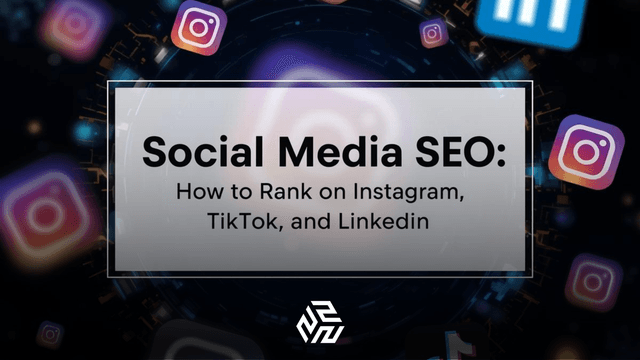
Black Hat PPC consists of unethical, and often illegal, techniques used to manipulate or exploit PPC platforms like Google Ads, Bing Ads, and social media platforms. The aim of Black Hat PPC tactics is usually to get a competitive edge, siphon traffic, increase click-through rates, or drain competitors’ budgets by misleading or directly impacting the PPC ad network. These practices are against the terms of service of most platforms and can result in serious consequences if detected.
Common Black Hat PPC Techniques
Let’s dive into some of the most prevalent Black Hat PPC strategies:
1. Click Fraud
Click fraud is one of the most common forms of Black Hat PPC. In click fraud, bots or even people are used to repeatedly click on a competitor’s ads, which can quickly deplete the competitor’s budget without giving them any real return on investment (ROI). This can cause the competitor’s ads to stop showing, giving the fraudster an advantage in the ad space.
- Types of Click Fraud:
- Bot Clicks: Using automated bots or scripts to generate artificial clicks.
- Click Farms: Employing low-cost labor to repeatedly click on competitor ads.
- Competitor Clicks: Manual, individual clicks from competitors or their affiliates.
2. Ad Copy Plagiarism
Some black hat marketers will copy successful ad copy, keywords, and even product descriptions from competitors. By mimicking what works well for other brands, they attempt to draw traffic away without doing the research or testing themselves. This tactic is particularly harmful to brands that have invested heavily in creating unique and optimized content.
3. Using Misleading URLs
A misleading URL may look legitimate but actually redirects users to a different, often irrelevant or malicious site. This is a form of bait-and-switch where users click expecting to reach one website, only to end up somewhere else. This practice is highly deceptive and violates the terms of all reputable ad networks.
4. Fake Negative Reviews and Ads
Some black hat practitioners will go to the extent of posting fake negative reviews about competitors or creating ads with misleading information to dissuade potential customers from choosing them. While not directly a PPC manipulation, this can work in tandem with other black hat tactics to damage a competitor’s reputation.
5. Geographical Targeting Abuse
Another black hat tactic involves running ads in geographical areas where they know competitors have low budgets or little brand presence. By capitalizing on these less competitive regions, they can attract high-quality traffic at a low cost while undermining local competitors who may not be able to compete at the same budget levels.
6. Bidding on Competitor Brand Terms
While bidding on competitor keywords is allowed, using deceptive ad copy that implies the competitor’s brand name is often against PPC platform guidelines. For example, a black hat PPC ad might pretend to represent a well-known brand to lure customers, creating confusion and frustration for users who think they are clicking on a legitimate ad.
7. Cloaking
Cloaking refers to showing different content to the PPC platform’s quality review team than what is shown to the actual user. Black hat advertisers may display an ad that meets guidelines but then send users to a page with unrelated or harmful content. Cloaking is not only unethical but can also be a security risk for users.
Why Do People Engage in Black Hat PPC?
The motivation behind Black Hat PPC can vary, but it generally boils down to the following reasons:
- Quick Profits: Black Hat PPC can deliver fast results with minimal initial investment.
- Competitive Advantage: Unethical marketers may believe these tactics can help them outpace competition without relying on fair-play SEO and PPC practices.
- Low Risk Perception: Some may underestimate the likelihood of getting caught, especially with more subtle black hat methods like ad copy plagiarism.
- Revenge or Sabotage: In cases of intense competition, some businesses resort to Black Hat PPC simply to damage a competitor’s ad performance or reputation.
Risks and Consequences of Black Hat PPC
While Black Hat PPC might seem appealing to some due to its fast results, it comes with significant risks:
- Account Suspension or Ban
If Google, Bing, or another PPC platform detects Black Hat practices, they may suspend or permanently ban the offending account. This could result in substantial financial losses, especially if the account is well-established. - Reputation Damage
Black Hat tactics can backfire by creating negative perceptions among users and business partners. If consumers find out that a brand is using deceptive advertising practices, it can damage trust. - Legal Repercussions
Some Black Hat PPC techniques, such as click fraud or cloaking, may be illegal in certain jurisdictions, potentially resulting in fines or lawsuits. - Competitor Retaliation
In some cases, competitors may detect Black Hat tactics and retaliate. This could lead to a vicious cycle of unethical behavior that damages the reputation and performance of both parties. - Inaccurate Performance Metrics
Black Hat PPC tactics can skew data, making it difficult for a business to accurately measure campaign effectiveness. Deceptive clicks or cloaked content can ruin a campaign’s actual performance assessment, leading to misguided strategies and financial waste.
Detecting and Avoiding Black Hat PPC Tactics
Avoiding Black Hat PPC techniques is relatively straightforward if you adhere to platform guidelines and focus on ethical marketing practices. Here are some tips for staying on the right side of PPC:
- Use Negative Keywords: Avoid unnecessary clicks by adding negative keywords to your campaigns. This ensures that you’re only attracting the most relevant traffic.
- Monitor Click Patterns: Tools and software can help you monitor unusual patterns, such as a high number of clicks from a single location or IP address. Reporting suspicious activity to the PPC platform can help you prevent click fraud.
- Stay Updated on Guidelines: PPC platforms like Google and Bing regularly update their advertising guidelines. Make sure to stay informed to avoid unintentional violations.
- Leverage Authentic Ad Copy: Write original, compelling ad copy and avoid using a competitor’s brand name unless you’re doing so transparently and within guidelines.
- Focus on Audience-Driven Targeting: Build genuine audience profiles and focus on targeting them effectively. Trying to bypass this by misleading users will ultimately create a poor user experience and damage brand trust.
Conclusion
While Black Hat PPC tactics can offer quick wins, they pose serious risks to long-term success and ethical business growth. Operating within PPC guidelines and maintaining transparency is essential for building a sustainable, trustworthy brand. Ultimately, integrity and user-centric advertising will drive the most rewarding results.
If you’re running a PPC campaign, always prioritize long-term growth and avoid the allure of shortcuts. Not only does this approach build your brand’s reputation, but it also ensures that your advertising spend yields genuine, valuable results. By understanding the pitfalls of Black Hat PPC, marketers can make more informed decisions and contribute to a healthier digital advertising ecosystem.
Explore Our Blog Your Source for SEO Brilliance


How to Buy, Store, and Secure Cryptocurrency Safely in 2025
Read more about How to Buy, Store, and Secure Cryptocurrency Safely in 2025